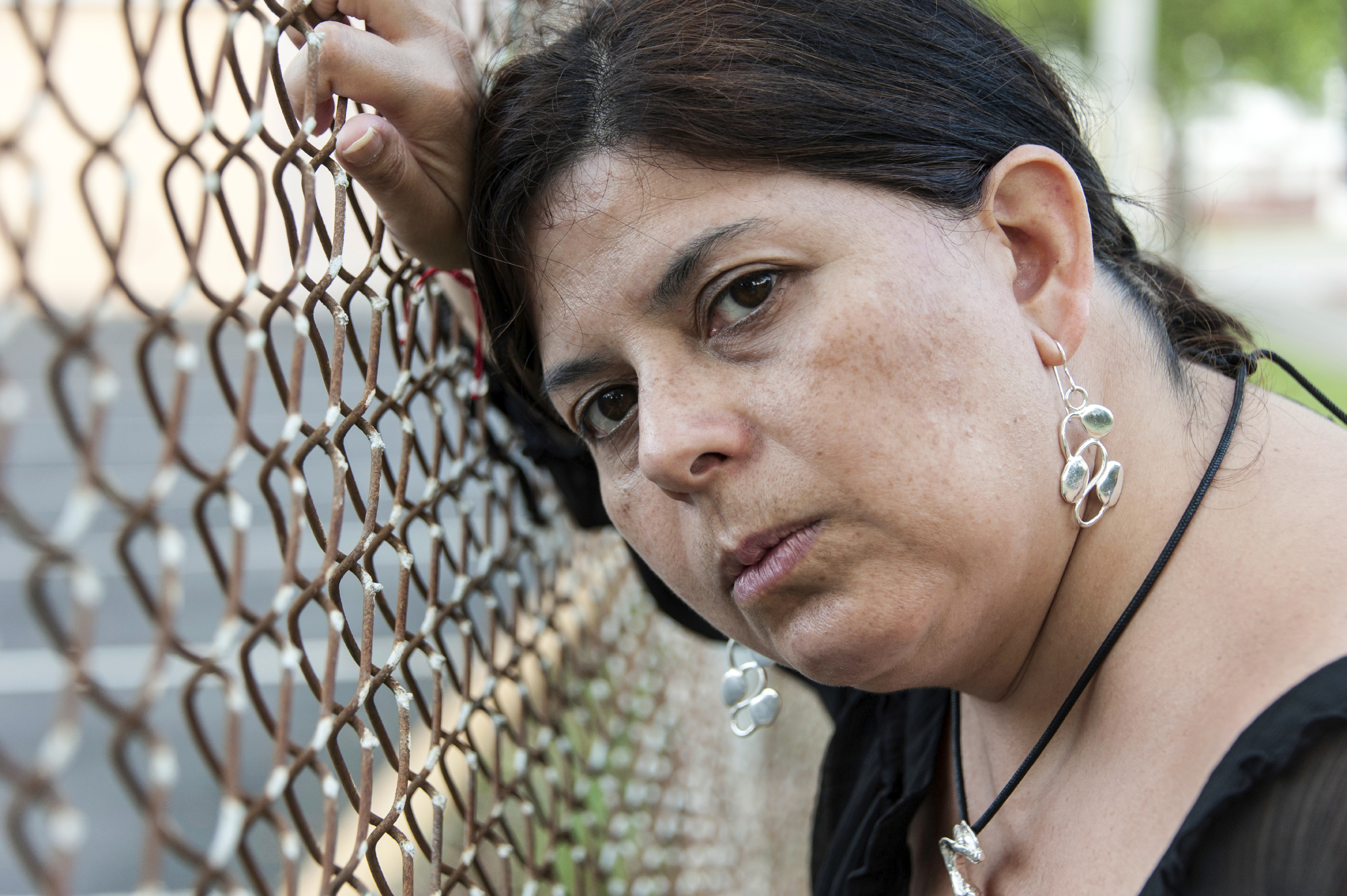A group of UConn students and faculty from the Schools of Law and Social Work will spend their spring break offering free legal and psychosocial assistance to female asylum-seekers from Central America being held at a federal immigration detention center in York, Pa.
The mostly non-English-speaking women, who are awaiting immigration proceedings, have limited access to counsel to help them file court documents and prepare for hearings before the immigration court, where their fate will be decided.
The past few years have seen a large flow of asylum-seekers to the U.S. from the Northern Triangle of Central America – El Salvador, Guatemala, and Honduras – as many residents of these countries face threats from gangs that have become de facto governments, says law professor Jon Bauer, director of the law school’s Asylum and Human Rights Clinic and one of two law faculty with the group. In these countries, violence against women has become rampant, he notes.
Migrants caught at the border seeking to enter the U.S. without authorization can be sent back to their home countries without a hearing, he continued. However, U.S. asylum law requires that if detainees express a fear of return to their home country, they must be given an interview with an asylum officer, although they can be kept in detention while awaiting that hearing.
It’s critical that detainees have access to legal advice, says Professor Anna Cabot, a teaching fellow at the law school’s Asylum and Human Rights Clinic, who played a leading role in organizing the service project. “When detainees represent themselves in their asylum hearings, they have, statistically, a 3 percent chance of being granted asylum. With legal representation, their chances are six times better.”
Cabot has previously represented asylum-seekers before immigration courts in Texas, where she was Managing Attorney at Las Americas Immigrant Advocacy Center in El Paso before she joined UConn Law.
A total of 12 students, four faculty members, and two Law School alumnae volunteers who currently work in immigration law, will participate in the seven-day Immigration Detention Service Project.
With the development of family detention centers along the southwest U.S. border in the past few years, major organizations like the American Immigration Lawyers Association have set up a system for volunteer attorneys to assist asylum-seekers for short periods of time, Cabot says. A few law schools have arranged to send groups of students and professors to assist at other detention centers in week-long trips, but it is not common. The UConn contingent is also unusual in including participants from both law and social work.
Three of the law students on the team have taken part in the law school’s Asylum and Human Rights Clinic. Since its founding in 2002, the Clinic has handled 120 asylum cases to completion, winning grants of asylum or similar forms of immigration relief in 111 of those cases.
Although the other students have no prior experience in immigration law, they were selected on the basis of their interest and Spanish language skills. The one participating social work student has extensive experience working with trauma sufferers in a jail mental health unit, and is also bilingual in English and Spanish.
“What we all have in common is a commitment to helping a vulnerable, detained population that desperately needs help,” says Bauer.
Due to time constraints, the UConn Law students won’t be able to represent any women in their asylum hearings. Instead, they will interview the women and help them prepare detailed affidavits that set forth their experiences, and prepare packages of supporting evidence – including documentation of the prevailing conditions in the clients’ home countries – to support their eligibility for asylum.
The social work team is led by social work professors Megan Berthold, a nationally recognized scholar of mental health outcomes among traumatized refugees, asylum seekers, and immigrants, and Kathryn Libal, who also directs UConn’s Human Rights Institute. They will conduct psychosocial evaluations to buttress the credibility of some women’s personal statements, and will research country conditions related to specific cases.
“In detained asylum cases, where other evidence besides the testimony of the applicant is either non-existent or too difficult to come by, a psychological evaluation can be very valuable to present to a judge,” Cabot explains. “It can help explain why an asylum-seeker may have difficulty remembering all the details of their persecution because of the trauma they experienced, and can provide evidence of what the asylum-seeker might experience if forced to return to their country of origin.”
The students will be supervised by the faculty members and alums, as they interview and prepare documents to submit to the immigration court.
“The assistance our students will provide should greatly increase these women detainees’ chances of convincing an immigration judge that they should be granted asylum,” says Bauer. “And the students will gain experience in client interviewing, fact investigation, and written advocacy that will advance their professional skills and training, as well getting a deepened understanding of human rights issues.”
Funding for the trip comes from the Tulisano Human Rights Endowment, the UConn Human Rights Institute, and private donations.



